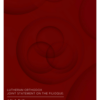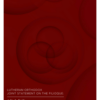Tag: Joint
New Study Guide on the Joint Statement on the Filioque
This post is shared jointly on the Ecumenical and Inter-Religious Perspectives blog and the ELCA Worship blog. 1700 years ago, in 325, the first ecumenical council was convened in Nicaea to discern matters central to the Christian faith, namely: How do we understand Jesus Christ? The council sought to end disputes about the divine nature of Jesus, and his relationship to God in an attempt to unify all of Christendom. The end-result, later expanded in 381, was the Nicene-Constantinopolitan Creed – a clear articulation of the complexity of the faith. However, a later addition to the creed – the “filioque”…
New Study Guide on the Joint Statement on the Filioque
This post is shared jointly on the Ecumenical and Inter-Religious Perspectives blog and the ELCA Worship blog. 1700 years ago, in 325, the first ecumenical council was convened in Nicaea to discern matters central to the Christian faith, namely: How do we understand Jesus Christ? The council sought to end disputes about the divine nature of Jesus, and his relationship to God in an attempt to unify all of Christendom. The end-result, later expanded in 381, was the Nicene-Constantinopolitan Creed – a clear articulation of the complexity of the faith. However, a later addition to the creed – the “filioque”…
Arabic Joint Liturgy: Translation and Contextualization
This blog post was co-written by Rev. Charbel Zgheib of the ELCA and Rev. Hakim Shukair of The Episcopal Church. Our faith is shaped by our prayer. For Arabic-speaking Christians in the Evangelical Lutheran Church in America (ELCA) and The Episcopal Church, worshiping in their native language deepens this connection. As the number of Arabic speakers grows in the U.S., creating a meaningful Arabic liturgy has become more than a translation task—it’s a vital step toward honoring and empowering faith communities. The Power of Language in Worship When Immigrant Christians in the United States pray in their native language, they engage…

